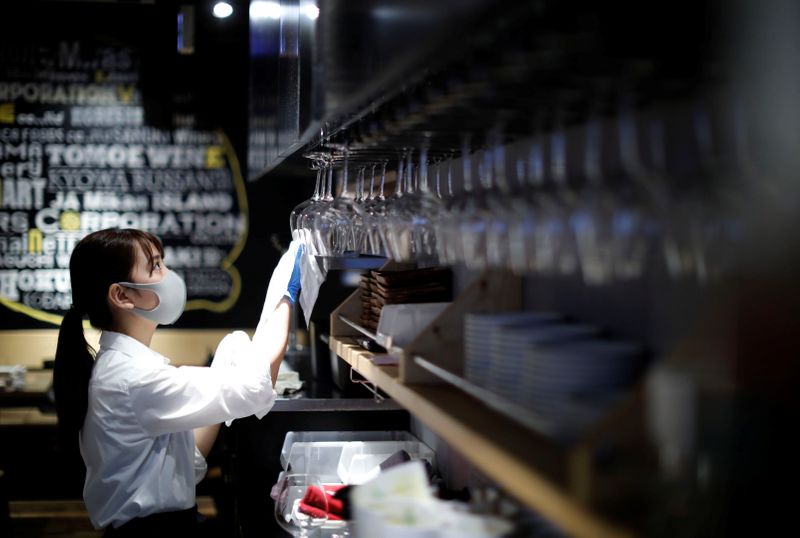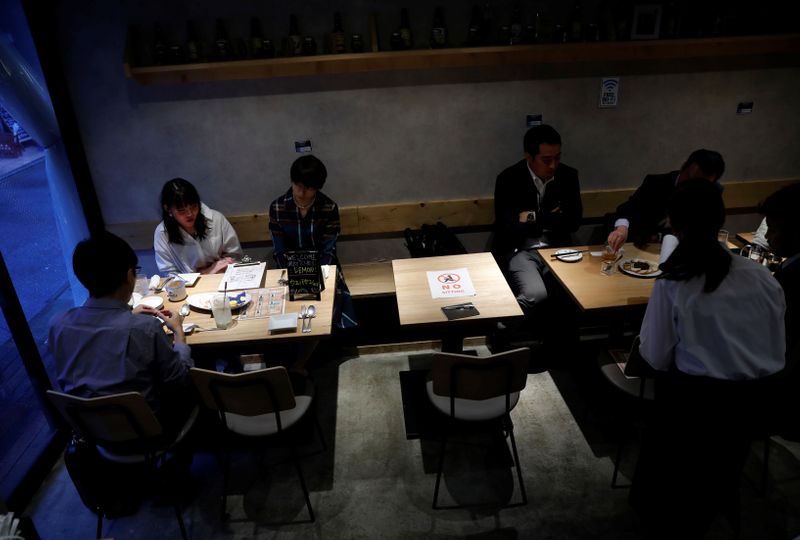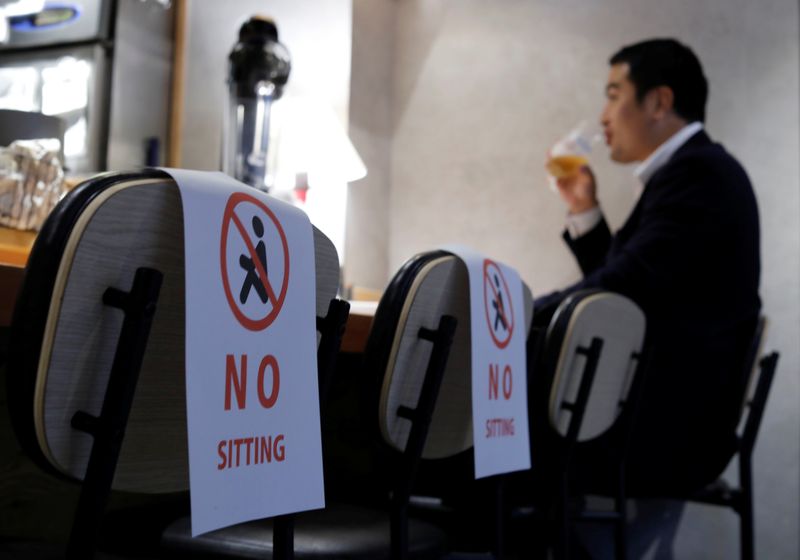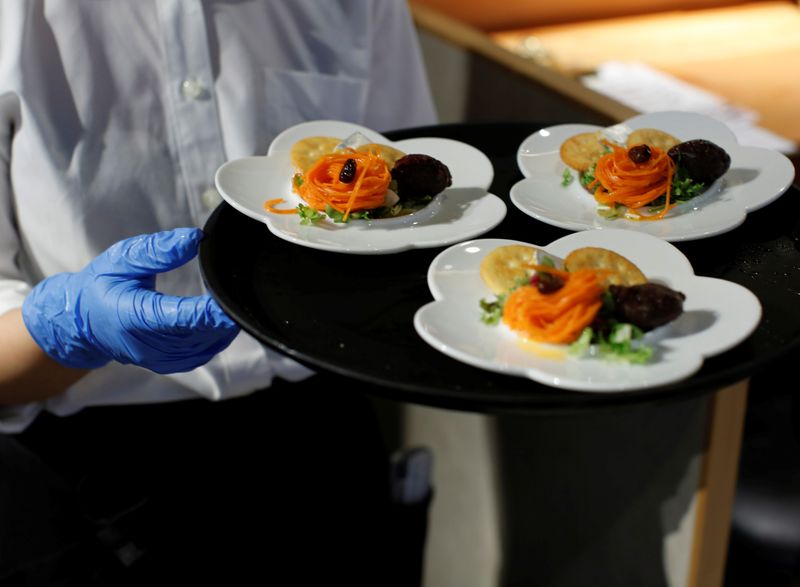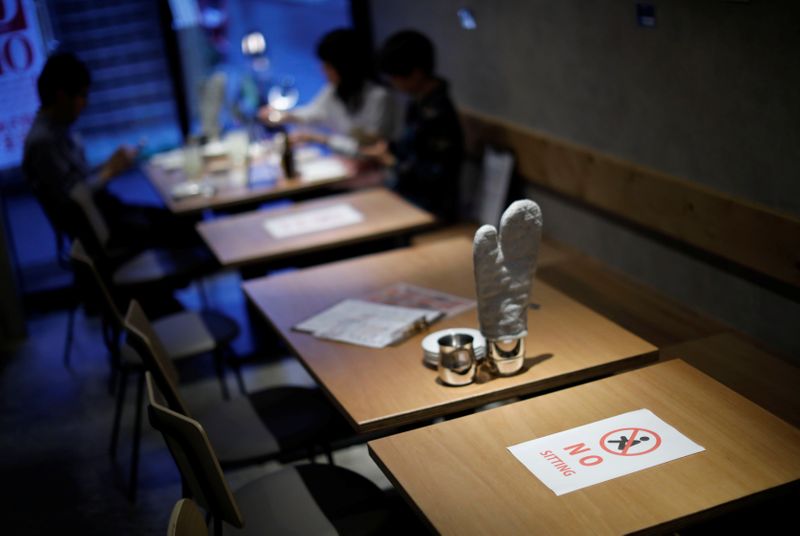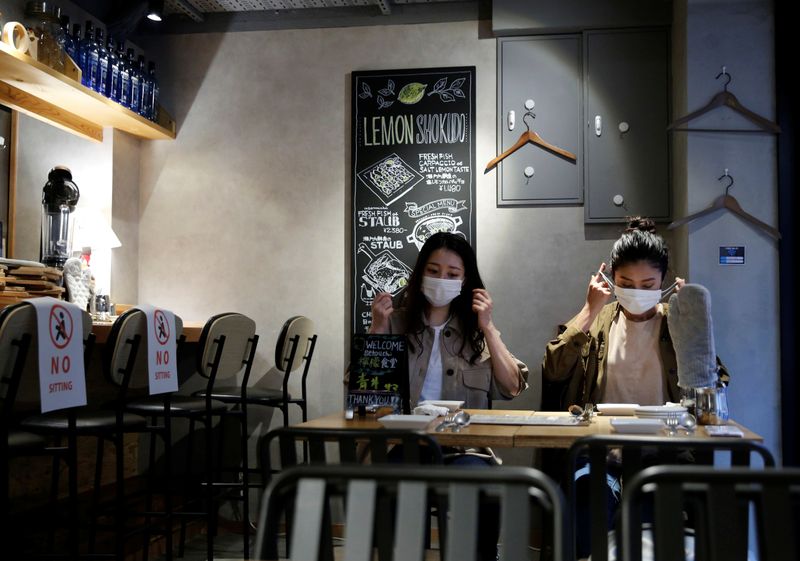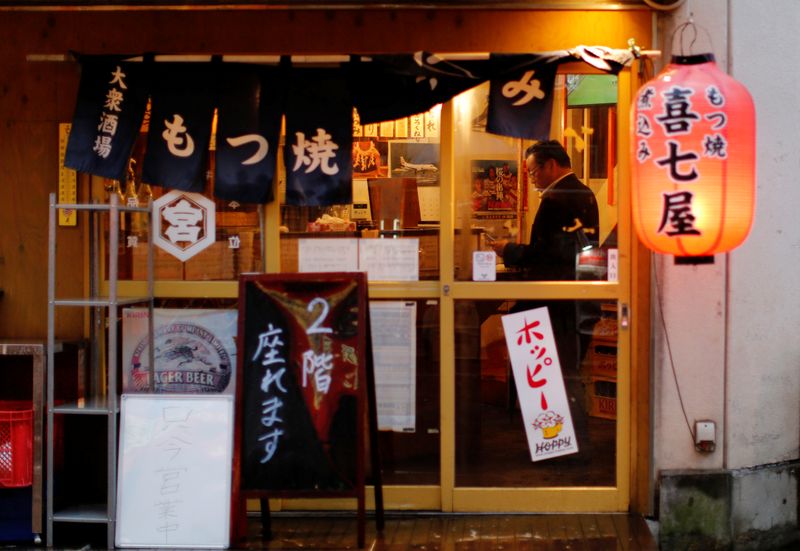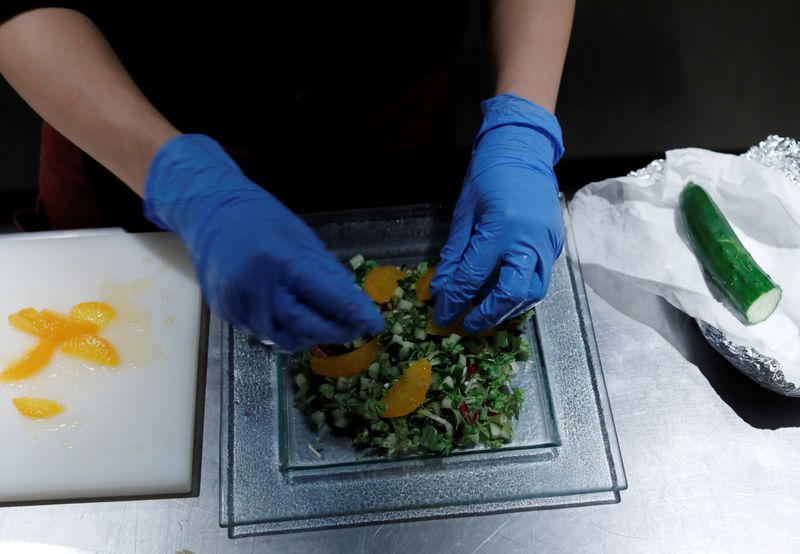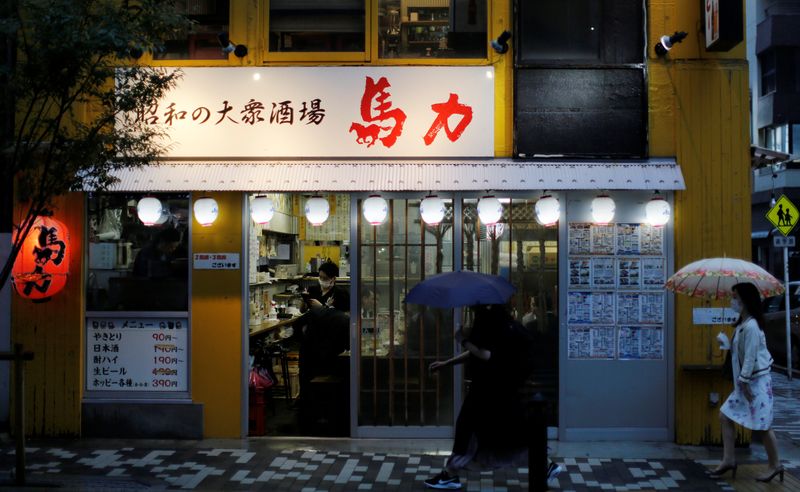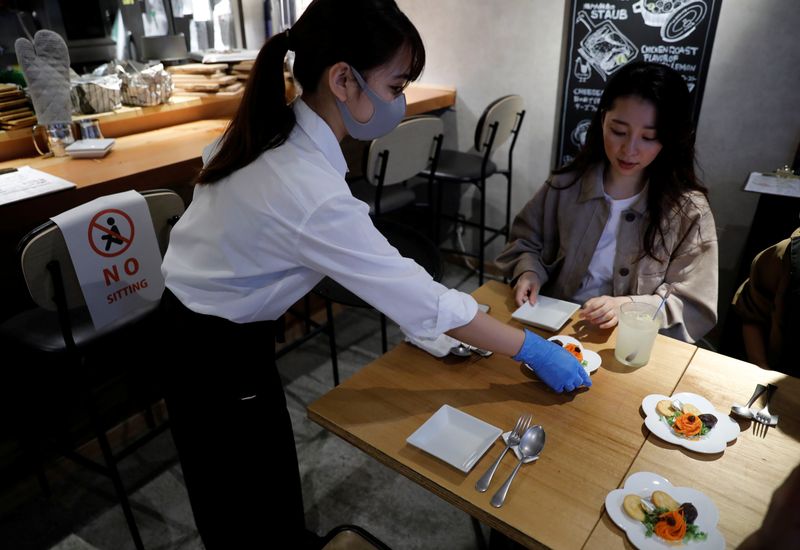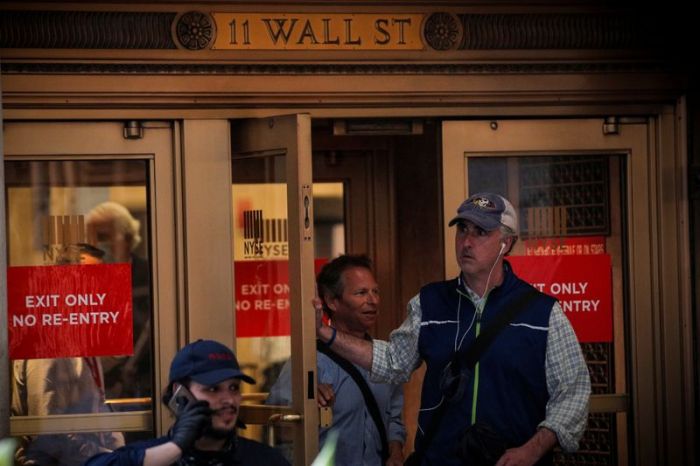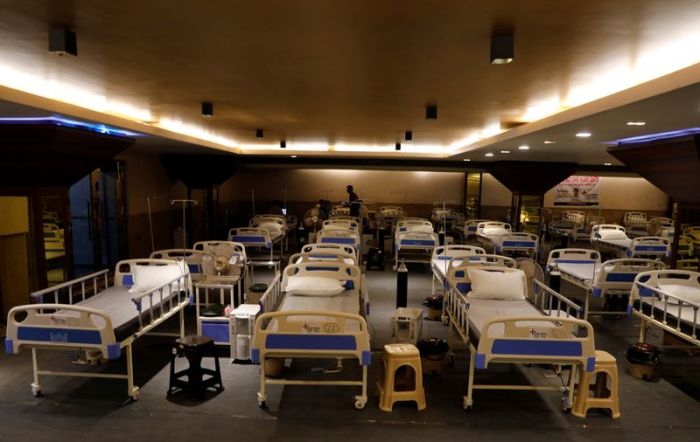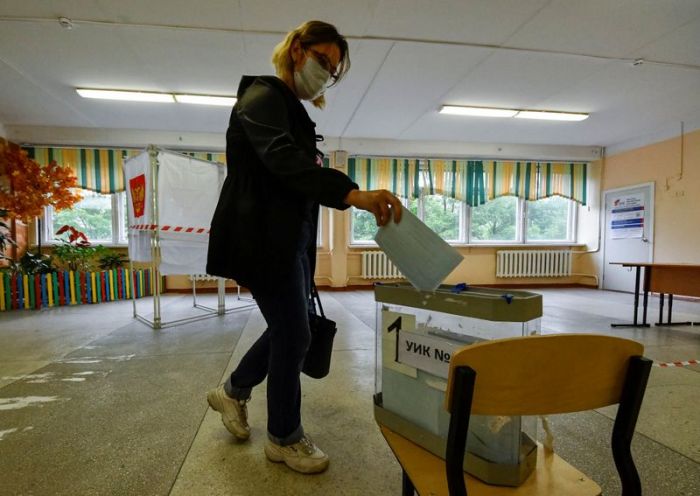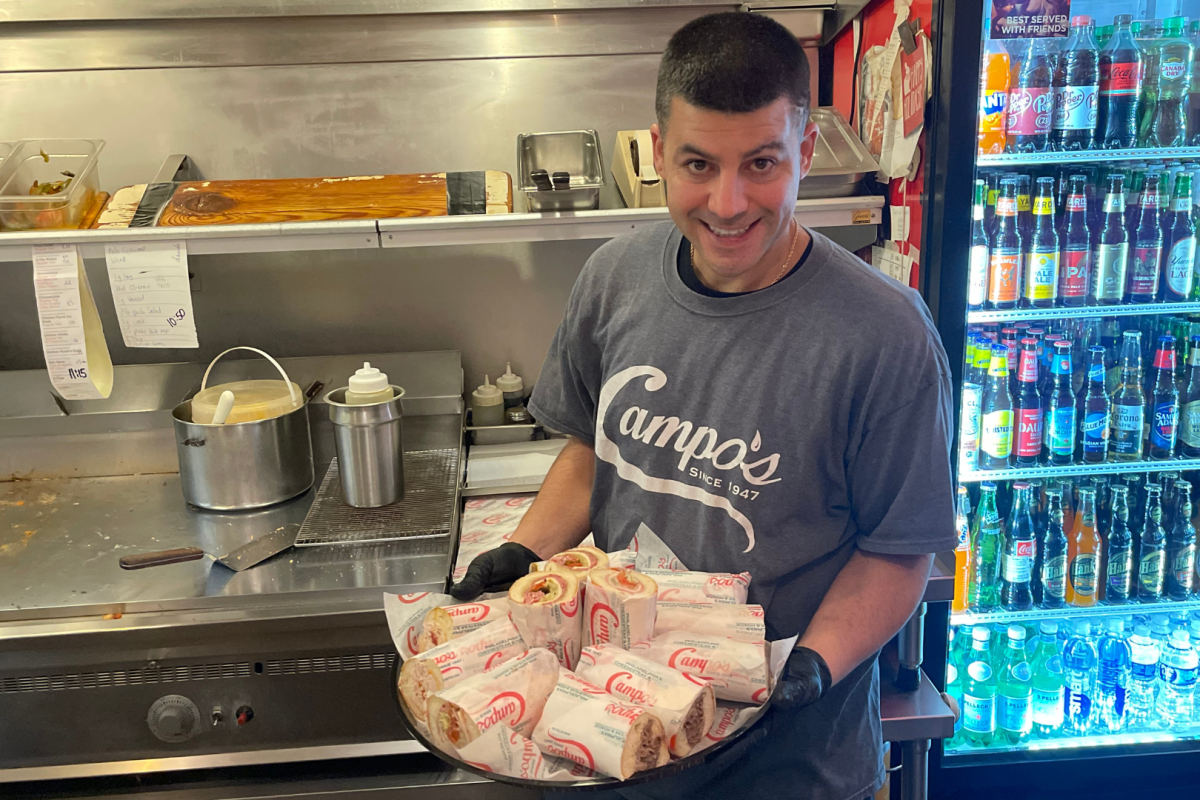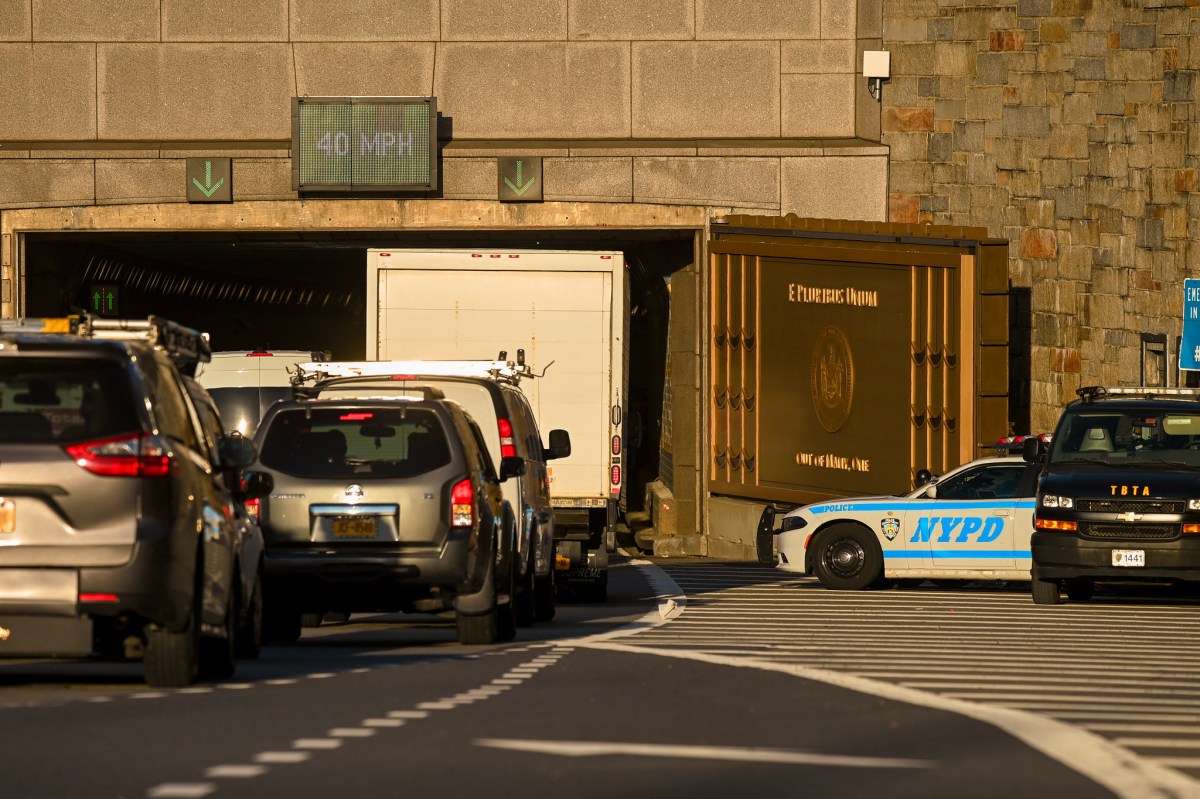TOKYO (Reuters) – Japan’s after-work drinking scene has been disrupted by the coronavirus pandemic, forcing its often jam-packed “izakaya” dining bars to reinvent themselves to survive.
For decades, izakayas – a mainstay of Japanese working culture and late-night drinking – have thrived by offering cheap drinks to thirsty office workers in cozy settings.
Even though lockdown measures to contain the virus were lifted in late May, izakayas are facing an existential crisis as more people work from home and social-distancing rules force most eating and drinking outlets to halve their seating.
“I used to drink out about twice a week. Not anymore,” said 26-year-old Erika Aoi. “It was nice to hang out with colleagues after work, so it’s sad the culture is shrinking.”
Hitoshi Yaosaka’s shops are among those hit hard. The 10 izakayas he runs in Tokyo have seen customer numbers return to only a third of their pre-pandemic levels, with fewer workers commuting to nearby offices.
“If drinking out isn’t considered welcome, izakayas will go under. There’s a pretty good chance Japan’s izakaya culture will die down,” says Yaosaka, who warns that small izakayas like his aren’t profitable if the already-tiny establishments cut counter seats by half.
The government hasn’t given a timeframe for how long the restrictions will last. But officials warn they must stay in place until an effective vaccine is developed. That may prod more companies to allow employees to work from home and reduce opportunities for drinking outings with far-flung colleagues.
Restaurants make up 16% of coronavirus-related bankruptcies in Japan so far, according to data from think tank Tokyo Shoko Research.
The gloom could put a dent in consumption for months if not years, and prolong Japan’s already deepening recession.
“Consumption may rebound somewhat in June but will take a very long time to return to pre-pandemic levels,” said Yoshiki Shinke, chief economist at Dai-ichi Life Research Institute.
The disappearance of social drinking has hit restaurant and izakaya chain operators like Colowide, which is shutting 7% of its 2,665 outlets. Rival Watami is also closing 13% of about 500 outlets.
Takeshi Niinami, a government adviser and head of Japanese beverage maker Suntory Holdings, warns that more than 20% of bars and restaurants could fail because of the pandemic.
“Given the current coronavirus situation, what I’d like to see is for them to make it through the next two to three years until we can allow for more noisy, intimate get-togethers,” Niinami said.
Surviving that long is no easy task for many izakayas in a shrinking market. Some are rethinking their business models.
Watami will open new wagyu beef restaurants targeting families and launch a fried chicken delivery service.
Setouchi Lemon Shokudo, an izakaya near Tokyo’s Nihonbashi business district, was packed with office workers before the pandemic.
Now, social-distancing policies have forced the shop to cut seats to 30 from 50. Sales and visitor numbers in June are still 30% of what they were a year ago.
To make up for lost sales, the shop bought a food truck to sell lunches to a wider range of customers. It also started selling take-out meals and food online.
Tadao Nakashima, CEO of Bears Corp, which owns Setouchi Lemon, does not expect business to recover this year.
“The pandemic has shaken the foundation of our business, which is to provide a venue for face-to-face communication,” said Nakashima, who has been in the izakaya business for more than two decades.
“We may need to come up with a model that doesn’t focus too much on alcohol.”
(Reporting by Leika Kihara and Daniel Leussink; Editing by Gerry Doyle)

